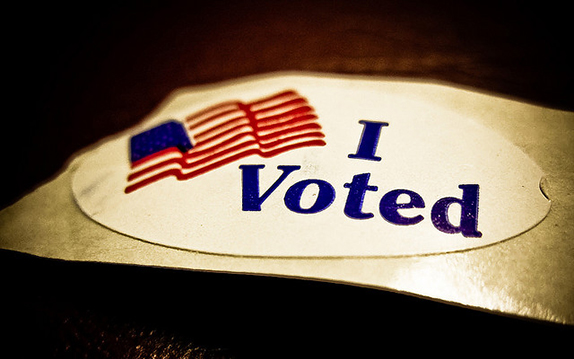
In June, 2013, the US Supreme Court struck down the most important aspect of the Defense of Marriage Act (DOMA), thus paving the way for the flood of states that have since, either legislatively or judicially, opened to marriage equality. It was a pivotal moment for LGBTQ citizens and our allies. At the same time, in Shelby County vs. Holder, the Court gutted Section 4b of the Voting Rights Act, achieved through struggle and sacrifice at the height of the Civil Rights Movement in 1965. That decision was as disappointing as the other was joyous.
Because our movements do not yet overlap as fully as they should, those applauding one decision largely ignored the other, and vice versa. Yet both concern freedom for all peoples, and those who do not understand that, do so at their peril. Surely we remember the famous Martin Niëmoller quote: “First they came for the Socialists and I did not speak out because I was not a Socialist. Then they came for the Trade Unionists and I did not speak out because I was not a Trade Unionist. Then they came for the Jews and I did not speak out because I was not a Jew. Then they came for me and there was no one left to speak for me.” One can substitute any group of people and the maxim works equally well.
In Shelby County vs. Holder, the Court divided along the usual lines. Chief Justice Roberts wrote the majority decision, joined by Scalia, Kennedy, Thomas and Alito. Justice Ginsburg wrote the dissenting opinion, joined by Breyer, Sotomayor and Kagan. Justice Thomas, who has not asked a single question in all the years he has sat on the highest bench in the land, also wrote his own opinion, going even farther in his efforts to destroy voting rights than the rest of the majority. Following the Court’s decision, old time activists who gave many years to fighting for equal rights for African Americans showed their profound disappointment. Many others also bemoaned what they perceive as a setback to universal enfranchisement in this country.
It is absolutely true that if we call ourselves a democracy we must do everything possible to make sure every citizen is able to vote: easily, freely, with access to as much real information as possible, and without coercion of any kind. The above-referenced Supreme Court decision upholds maneuvers in states still fraught with racism to deny people of color the vote. So do many other practices, some sanctioned by law, others hidden but no less ruthless. These include, but are not limited to, gerrymandering and other flagrant efforts at redistricting, the widespread use of robot calls that lie to constituents, requiring several pieces of identification (many of which are expensive or hard for everyone to obtain), rigging voting machines, tampering with results, and threatening certain groups of voters.
Although the Voting Rights Act of 1965 was established to guarantee African Americans access to the polls, many other groups face voter suppression in our country today. Native Americans, especially those living on reservations, are routinely targeted. Women, immigrants and students face obstacles. And poverty affects a person’s ability to vote in more ways than this brief opinion piece has room to enumerate.
Some suggest that the way to avoid being constantly on the defensive against efforts to restrict access to the polls would be a constitutional amendment guaranteeing the universal right to vote. I have no doubt this would be a positive step. But I propose something a bit more radical—and democratic: that suffrage be seen as a duty rather than a privilege or right.
If citizens of a certain age and mental ability were required to vote, we would automatically have something close to universal enfranchisement. No retrograde Supreme Court judges—including one who should certainly know better, given his own heritage—would be able to restrict that right. No local authority or manipulative power would be able to make the physical act of voting so difficult.
The arguments against, of course, focus on the idea of individual freedom. Forcing a person to do something against his or her will doesn’t sound democratic. States rights are also often brought up. The arguments in favor posit that only a country whose governing bodies reflect the choices of all its citizens can truly be considered representational.
Voting as an obligation, not a privilege, is not an original idea. A number of countries require that their citizens vote. As of 2013, these include Argentina, Australia, Brazil, Ecuador, Democratic Republic of Congo, Luxembourg, Nauru, Peru, Singapore, and Uruguay. An additional group of countries have voter requirement laws on their books but do not enforce them. These include Belgium, Bolivia, Costa Rica, Dominican Republic, Egypt, Greece, Honduras, Lebanon, Libya, Mexico, Panama, Paraguay, Thailand and Turkey.
Despite what they may call themselves, the political systems in these countries differ in practice in a number of important ways. Some look to us like democracies, others like dictatorships. I am familiar with Uruguay, because I have family there and visit often. I can personally attest to the fact that real universal suffrage has helped create a nation in which the vast majority feel represented by their chosen leaders, and those leaders have shown themselves to be responsive to the needs of their constituents. In a country that is serious about democracy, I believe voting should be an obligation, not a responsibility one may shirk and then complain about the actions of one’s elected officials.
Obligatory suffrage would mean rich and poor, those of all races, ethnicities, legal status and gender identification, have a voice in how our country works.
(Photo by Vox EfX)



Responses to “Enfranchisement: Right or Duty?”